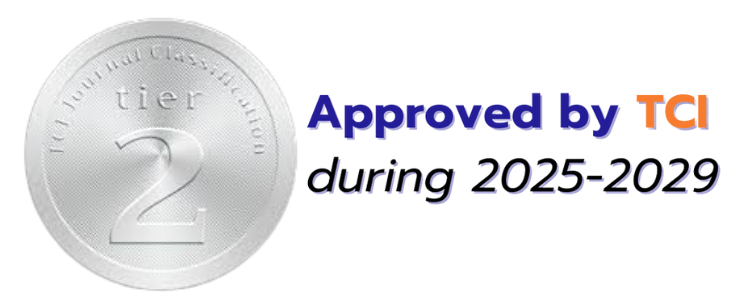การพัฒนาความฉลาดทางอารมณ์โดยการใช้กิจกรรมดนตรีของนักเรียนระดับชั้นมัธยมศึกษาตอนต้น โรงเรียนสาธิตแห่งมหาวิทยาลัยเกษตรศาสตร์ วิทยาเขตกำแพงแสน ศูนย์วิจัยและพัฒนาการศึกษา
Development Of Emotional Intelligence by Using Music Activities of Junior High School Students Kasetsart University Laboratory School Kamphaeng Saen Campus Educational Research and Development Center
Keywords:
ความฉลาดทางอารมณ์, กิจกรรมดนตรี, Emotional, Music ActivitiesAbstract
การวิจัยนี้มีวัตถุประสงค์ 1) เพื่อศึกษาระดับความฉลาดทางอารมณ์ของนักเรียนในระดับชั้นมัธยมศึกษาตอนต้น และ 2) เพื่อพัฒนาความฉลาดทางอารมณ์โดยใช้กิจกรรมดนตรีของนักเรียนในระดับ ชั้นมัธยมศึกษาตอนต้น โดยกลุ่มตัวอย่าง ได้แก่ นักเรียนชั้นมัธยมศึกษาปีที่ 2 โรงเรียนสาธิตแห่งมหาวิทยาลัยเกษตรศาสตร์ วิทยาเขตกำแพงแสน ศูนย์วิจัยและพัฒนาการศึกษา ภาคเรียนที่ 1 ปีการศึกษา 2565 จำนวน 170 คน ที่ได้จากการสุ่มตัวอย่างแบบเจาะจง (Purposive sampling) เป็นการวิจัยเชิงทดลอง One Group Pretest - Posttest Design แบบหนึ่งกลุ่มทดสอบก่อนและหลัง เครื่องมือที่ใช้ ประกอบด้วย แบบประเมินความฉลาดทางอารมณ์ สำหรับวัยรุ่น (อายุ 12-17 ปี) ของกรมสุขภาพจิต กระทรวงสาธารณสุข และแผนการจัดการเรียนรู้วิชาดนตรี เรื่อง การปฏิบัติขลุ่ย รีคอร์เดอร์ (Recorder) จำนวน 7 แผน ๆ ละ 2 คาบ/สัปดาห์ รวม 10 สัปดาห์ โดยผ่านการตรวจสอบความถูกต้องและความเหมาะสม โดยผู้เชี่ยวชาญ มีค่าเท่ากับ 4.72 อยู่ในระดับเหมาะสมมากที่สุด วิเคราะห์ข้อมูลด้วย สถิติพื้นฐาน ค่าเฉลี่ยส่วนเบี่ยงเบนมาตรฐาน และ t – test
ผลการวิจัย พบว่า
1) ระดับความฉลาดทางอารมณ์ของนักเรียน อยู่ในเกณฑ์ปกติ มีคะแนนเฉลี่ยรวม เท่ากับ 150.95 จำแนกเป็น ด้านดี อยู่ในเกณฑ์ปกติ มีคะแนนเฉลี่ย 55.59 ด้านเก่ง อยู่ในเกณฑ์ปกติ มีคะแนนเฉลี่ย 49.48 และด้านสุข อยู่ในเกณฑ์ปกติ มีคะแนนเฉลี่ย 45.88
2) การพัฒนาความฉลาดทางอารมณ์โดยใช้กิจกรรมดนตรีของนักเรียน หลังการใช้กิจกรรมดนตรีความฉลาดทางอารมณ์ของนักเรียนสูงกว่าก่อนการใช้กิจกรรมดนตรีอย่างมีนัยสำคัญทางสถิติที่ระดับ .05 เมื่อพิจารณาเป็นรายด้าน พบว่า ด้านดีและด้านเก่ง หลังการใช้กิจกรรมดนตรีความฉลาดทางอารมณ์ไม่แตกต่างจากก่อนการใช้กิจกรรมดนตรี อย่างมีนัยสำคัญทางสถิติ ส่วนด้านสุข หลังการใช้กิจกรรมดนตรีความฉลาดทางอารมณ์สูงกว่าก่อนการใช้กิจกรรมดนตรี อย่างมีนัยสำคัญทางสถิติที่ระดับ .05
The objectives of this research are 1) to study the level of emotional intelligence of junior high school students and 2) to develop the level of emotional intelligence of them. The study sample selected by the purposive sampling consisted of 170 junior high school students of Mathayom Sueksa 2of Kasetsart University Laboratory School Kamphaeng Saen Campus Educational Research and Development Center. The study instruments were an Emotional Intelligence Assessment for adolescents (12-17 years old) of the Department of Mental Health, Ministry of Public Health consisting of 52 items of the assessment and 7 lesson plans for music learning management about the practice of the recorder flute of which each lesson plan was done 2 class time periods through 10 weeks. These 2 study instruments had also been checked the accuracy and suitability by the experts, with a value of 4.72 at the most appropriate level. The data were analyzed in terms of arithmetic means, standard deviation and t-test.
The results revealed as follows:
1) The level of emotional intelligence of junior high school students was totally at normal level of 150.95 classified as emotional intelligence of goodness at normal level with an average score of 55.59, emotional intelligence of talent at normal level with an average score of 49.48 and emotional intelligence of happiness at normal level with an average score of 45.88.
2) In terms of the development of emotional intelligence of junior high school students, it was found that after doing music activities, the students’ level of emotional intelligence was significantly (p<.05) higher than before. In terms of the emotional intelligence of goodness and talent, the students’ level of emotional intelligence after doing music activities was not significantly (p<.05) different and in terms of the emotional intelligence of happiness, after doing music activities, the students’ level of emotional intelligence was ignificantly (p<.05) higher than before.
Downloads
References
Chinnapong, P. (2013). Music increases brain power. Bangkok: Happy Family
Chulwanich, S., & Rittikulsitthichai, N. (2013). A Study Of Students Emotional Quotient (EQ) At The Faculty Of Liberal Arts, Rajamangala University Of Technology Phranakhon. Rajamangala University of Technology Phra Nakhon.
Education, M. o. (2008). Basic Education Core Curriculum B.E.2551 (A.D. 2008). Bangkok: Agricultural Cooperative Printing House of Thailand.
Health, M. o. P. H. D. o. M. (2001). Manual of Emotional Intelligence. Revised edition (3 ed.): Department of Mental Health, Ministry of Public Health.
Jarupaisarn, T. (Producer). (2021). Emotional Intelligence.
Khun Perm, N. (2017). Learning of music based on suzuki method together with collaborative learning to develop singing skill and team work ability for prathomsuksa V student. Dhurakij Pundit University.
Lertwilai, M. (2021). The results of recreational activities used for increasing emotional quotient of male footballers at Phuket Rajabhat University. Journal of Social Sciences for Local Development Rajabhat Maha Sarakham University, 2(5), 35-42.
Panitamai, W. (2008). Emotional Intelligence (EQ) Index for Happiness and Success in Life (7 ed.). Bangkok: Chulalongkorn University Press. Information and public relations.
Pinyopanuwat, R. (2013). Sampling Design - Registration and Measurement Office. : Sukhothai Thammathirat Open University.
Srisa - Ard, B. (2010). Preliminary research (8 ed.). Bangkok: Suweeriyasan.
Srisa - Ard, B. (2013). Statistical Methods for Research (5 ed. Vol. 1). Bangkok: Suweeriyasan.
Taweerat, P. (2000). Research methods in behavioral and social sciences. (7 ed.). Srinakharinwirot University: Bureau of Educational and Psychological Testing.
Wongrattana, C. (2010). Techniques for using statistics for research (3 ed.): God creates printing.







